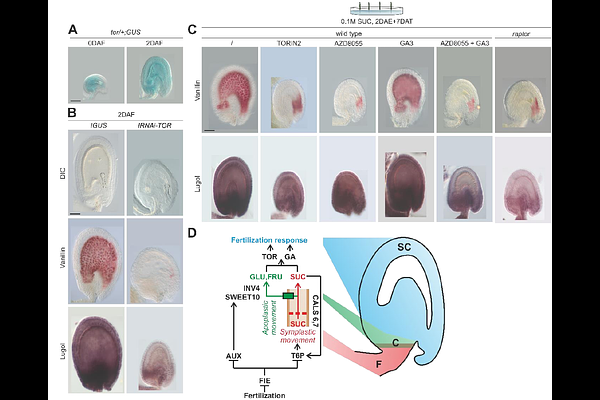Too much sugar makes plants "pregnant": maternal sucrose signals fertilization in Arabidopsis seeds

Too much sugar makes plants "pregnant": maternal sucrose signals fertilization in Arabidopsis seeds
Xu, W.; Iannaccone, M.; Gomez-Paez, D.-M.; Choinard, S.; Lu, J.; Le Hir, R.; Dinant, S.; Kalmbach, L.; Feil, R.; E. Lunn, J.; Meyer, C.; Magnani, E.
AbstractReproduction is deemed successful if it ensures the perpetuation of the species. Nonetheless, evolution has optimized reproductive efficiency across a diverse range of strategies. Animal vivipary, the process in which embryos develop inside the parent\'s body, allows for larger offspring and better protection. This reproductive strategy relies on a fertilization signal sent to the maternal tissues to establish an embryo-supportive environment, a process known as \"maternal recognition of pregnancy\". Despite being a strictly animal-only term, plants independently evolved a conceptually similar strategy: the seed habit, wherein the embryo is nourished and protected by surrounding maternal tissues. We discovered that sucrose is sufficient to trigger a fertilization-independent response in the maternal tissues of Arabidopsis ovules. Upon fertilization, the release of Polycomb-mediated repression promotes the symplastic and apoplastic flow of sucrose into the seed by modulating auxin and trehalose 6-phosphate signaling. The sucrose signal is then perceived by the TARGET OF RAPAMYCIN kinase and transduced into a gibberellin response to initiate the differentiation of the seed maternal tissues. This work revealed a zygotic-maternal interplay of hormonal and sugar signaling that drives the plant \"maternal recognition of fertilization\", incorporating energetic cues into developmental pathways.